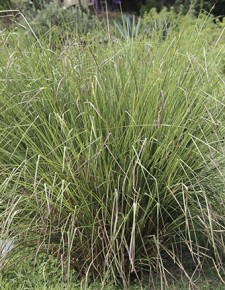Rosehip Oil – AntiAging
Rosehip Oil: the Anti-Aging Oil?
from Dr. Axe
What do the Duchess of Cambridge, Gwyneth Paltrow, Victoria Beckham and model Miranda Kerr all have in common? Reportedly, they use rosehip oil to keep their skin smooth and blemish-free.
I never thought I would suggest something over coconut oil for skin, but rosehip oil, also known as rosehip seed oil, is running a close race with coconut oil when it comes to its benefits for the skin. Rosehips were a remedy that was used by the ancient Egyptians, Mayans and Native Americans all because of its amazing healing properties.
Indeed, rosehip oil was made into a syrup and rationed in Britain during wartime to ensure children’s resistance to infection. The syrup was made from the empty seed cases and also helped provide relief from diarrhea, stomach and menstrual cramps, nausea and indigestion. As you can see, rosehip oil — which is technically not an essential oil — has many uses that go more than skin deep.
Why Is Rosehip Oil So Effective?
Rosehip oil comes from the seeds of a specific variety of rose, Rosa aff. rubiginosa or Rosa moschata, which is the fruit left behind after a rose has flowered and dropped its petals. Rosehip oil is harvested from the seeds of rose bushes predominately grown in Chile, and is full of vitamins, antioxidants and essential fatty acids that are known to correct dark spots and hydrate dry, itchy skin, all while reducing scars and fine lines.
By using a cold-press extraction process, the oil is separated from the hips and seeds. For facial skin care, rosehip oil offers several benefits when applied externally. It protects the skin and increases cell turnover because it contains vitamin E, vitamin C, vitamin D and B-carotene, a form of vitamin A, and which are all antioxidants that help fight free radicals.
Rosehip oil’s healing properties are due to its chemical structure. As I noted, it’s rich in essential fatty acids, but more specifically oleic, palmitic, linoleic and gamma linolenic acid (GLA). Rosehip oil contains polyunsaturated fatty acids (vitamin F), also known as an essential fatty acid (EFA), and when absorbed through the skin, these fatty acids convert to prostaglandins (PGE), which are involved in cellular membrane and tissue regeneration.
Specifically, it is that regeneration that can provide anti-aging benefits. It is particularly high in vitamin C, making it one of the richest plant sources for the skin and another reason why rosehip oil is a great choice.
Rosehip Oil Benefits
1. Anti-Aging Properties
Rosehip oil has signficant anti-aging benefits for your face. Super light and non-greasy, the anti-aging benefit comes from its high antioxidants and the oil’s ability to penetrate into deeper layers of the skin. The vitamin C and vitamin A, in particular, stimulate collagen production. Because vitamin A has small molecules, it allows deeper penetration into the skin and improves the skin’s moisture levels — thus reducing wrinkles and fine lines.
For those who are seeking to avoid chemicals and Botox, rosehip oil may be perfect because of its skin rejuvenating properties of vitamin C and lycopene. This makes it a safer solution to repair the skin’s surface and restore elasticity.
2. Protection from Age Spots
The UV rays of the sun can damage the skin, resulting in age spots and discoloration on the face. The antioxidants found in rosehip oil combat free radicals that cause sun damage. The vitamin A, combined with the oil’s essential fatty acids, can help improve skin tone, texture and pigmentation.
While too much sun exposure can decrease collagen, vitamin C can help counteract this damage. The oil is deeply moisturizing and aids in removing redness and irritation. These properties also make rosehip oil a possible treatment for rosacea.
3. Helps With Eczema and Reduces Scarring from Acne
The essential fatty acids found in rosehip oil can help get rid of scars and reduce the effects of eczema by promoting skin regeneration. Essential fatty acids are emollients, which improve the skin’s flexibility and permeability and help the skin repair itself.
The vitamin A can play a role here as well since it has the ability to improve skin texture and tone. Also, these essential fatty acids aid in reducing dry scalp and itchiness that are often caused by chemicals in most store-bought shampoos.
4. Boosts the Immune System
Because rosehip oil is one of the best sources of vitamin C, and since vitamin C helps treat infections and boost the immune system, it makes for a great option to help keep the immune system strong. Besides being an antioxidant, vitamin C is responsible for collagen production in the body, which is an important element in the structure of bones and muscles. Also, vitamin C aids in the proper absorption of iron that produces red blood cells.
5. Helps Reduce Osteoarthritis
According the the University of Maryland, rosehip tea is a great option to help reduce inflammation in the body. Anyone suffering from osteoarthritis can benefit by having a cup of rosehip tea on a regular basis. Arthritis Research UK reported a study regarding the effects of rosehip for patients who had osteoarthritis. They found that those who were given rosehips had a positive affect versus those that were not.
Ultimately, the rosehip significantly improved hip flexion when compared with the placebo. Significantly more participants in the active treatment group reported a reduction in pain compared with the placebo group. The rosehip group also had a reduction in some disease-related symptoms (like morning stiffness) and a significant decline in painkiller use. Reports have also shown that relief of inflammation be can be found by adding rosehip oil to your bath water.
Tips on How to Use Rosehip Oil
- Rosehip oil is delicate and can easily go rancid, so it’s important to take great care of it. Oftentimes, vitamin E oil is added to improve shelf life. Keeping it in the refrigerator or stored in a cool, dark location can help prevent rancidity.
- Though it’s more expensive, cold-pressed rosehip is best because it hasn’t been altered by heat and, therefore, retains more nutrients.
- Because rosehip oil classifies as a dry oil, it absorbs quickly into the skin. You can apply the oil directly to the face using gentle, massaging motions or use it in numerous skin care recipes.
- It’s a good oil to experiment with for DIY lotions and serums, such as this Rosehip Oil Eye Serum for Dark Circles & Puffiness.
- Applying the oil twice a day can have great benefits, but it is important to note that rosehip oil does not protect against sunburn.
- And while it can prevent and reduce acne scars, it should not be applied directly to active acne.
- If you have oily skin, make sure to test an area first to ensure the product won’t clog your pores, causing unwanted flare-ups.
- Last but not least, because it is a dry oil, meaning it absorbs quickly without leaving an oily skin residue, it may be best for normal to dry skin users.













